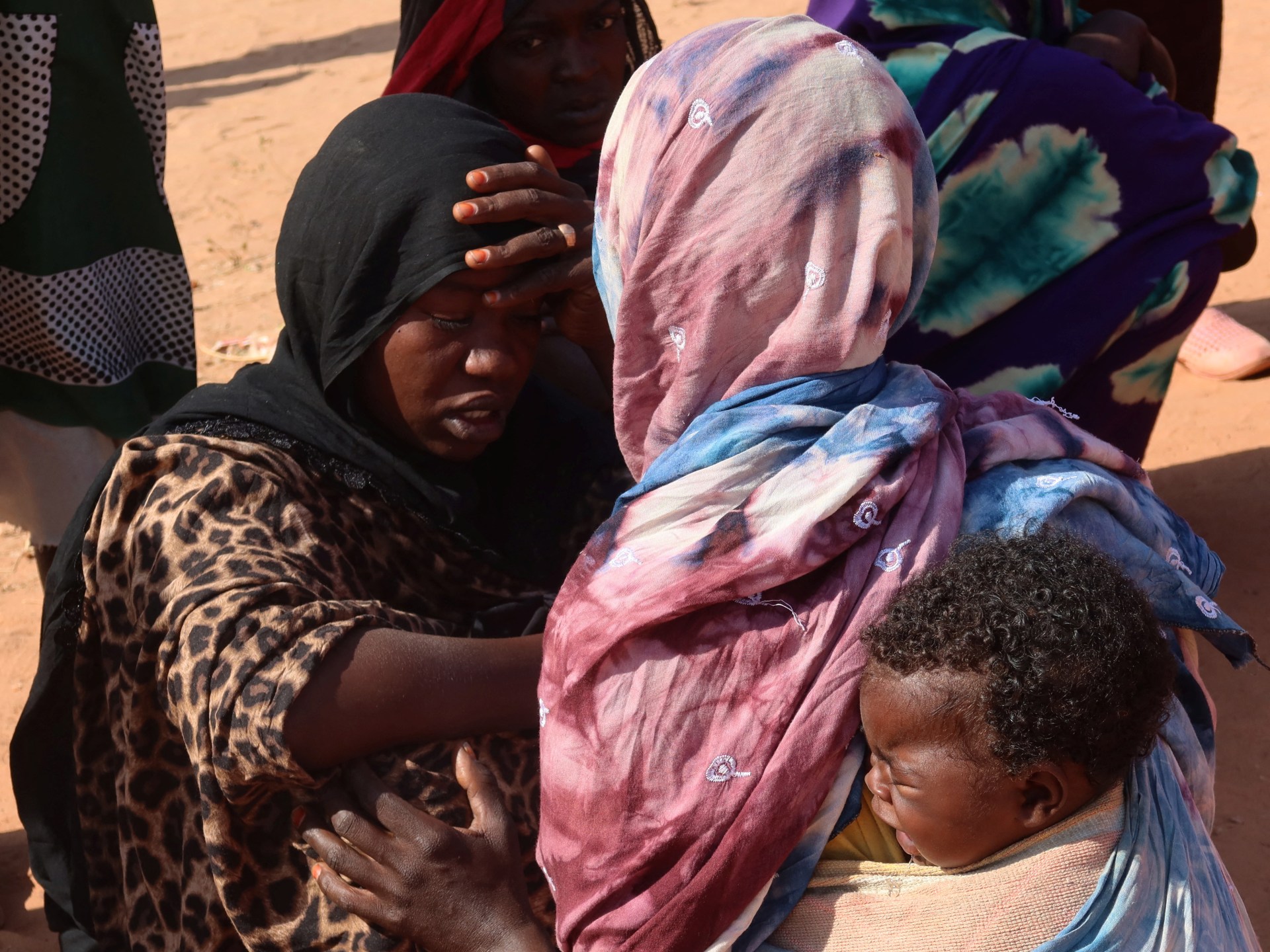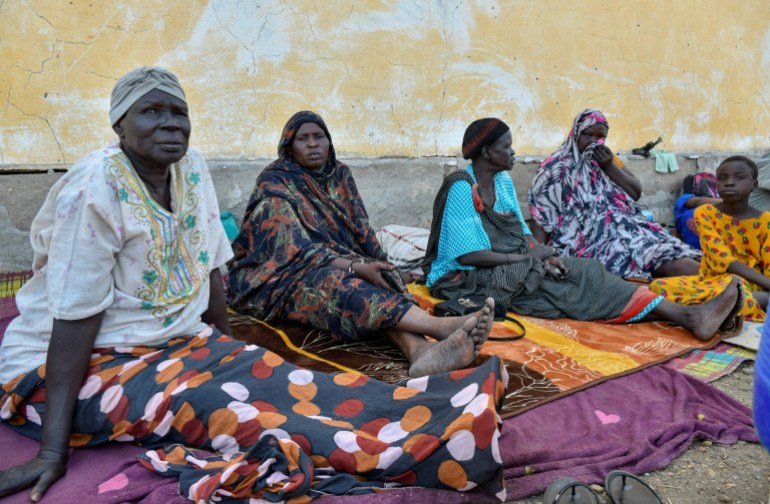
Cairo, Egypt – A large gathering of international aid and grassroots aid organizations working in Sudan met to discuss the increasingly desperate needs of local people as the armed conflict continues to claim lives and displace hundreds of thousands of people – and how to respond more effectively can work together.
International organizations need to communicate and coordinate more effectively with local groups, Mawada Mohammed, head of the Psychological Rehabilitation and Community Development Organization Ud in Khartoum, told Al Jazeera at the Sudan Humanitarian Crisis Conference in Cairo (November 18-20).
She said this “lack of coordination among themselves and between them and governments or international organizations” is one of the biggest challenges facing local groups.
Bashair Ahmed, CEO of diaspora-led humanitarian organization Shabaka, told Al Jazeera: “Local responders should have a voice in high-level policy and advocacy… They need to be equipped with the tools and skills to do this, not just invited to do so .”Dressing.”
Kidnapping, rape and assault
Since the beginning of the Sudanese Rapid Support Forces (RSF) a military campaign To take control of Khartoum on April 15, more than 10,000 people have been killed and at least six million displaced due to heavy fighting that has spread across most states.
The head of the World Health Organization warned that the conflict in Sudan was having a “devastating impact on lives, health and wellbeing” as aid groups raised the alarm that their Sudanese workers were being kidnapped, raped and attacked.
Addressing the conference, Tedros Adhanom Ghebreyesus said nearly 700 million Sudanese children suffer from “severe, acute malnutrition” and the country’s struggling health system is near “a breaking point.”
Dr. Abubakr Bakri, head of operations for East Africa at Doctors Without Borders (Medecins Sans Frontieres, or MSF), called for humanitarian aid workers to be provided with security.
He said MSF staff had been subjected to beatings, death threats and theft in the final months of the conflict. He added that violence and threats were mainly directed at Médecins Sans Frontières’ Sudanese staff, a point echoed by other NGOs at the summit who said local female staff had also been kidnapped and raped.
Aid agencies said fighting and blockades left them unable to reach places where people need help most and warned that local workers were in increasing danger.
Non-governmental organization experts emphasized that more than half of Sudan’s population – 25 million people – are in urgent need of humanitarian assistance and the medical situation is critical, with 70 to 80 percent of all hospitals across the country out of order.
In Khartoum alone, at least seven areas were under siege by the RSF, said Mukhtar Atif, an emergency center volunteer. Other areas away from the capital are completely cut off by fighting, making the arrival of humanitarian aid impossible, he added.
“It is becoming increasingly difficult to provide humanitarian assistance to citizens who find themselves in conflict zones,” Mohammed Salah, a Sudanese activist and member of the Emergency Lawyers group, told Al Jazeera.
A call for humanitarian corridors
Salah attended the conference in Cairo after traveling more than 48 hours from Gezira state in Sudan, where he has been since his home in Khartoum was overrun by fighting. He said the 1,020-kilometer (634-mile) drive to the airport in Port Sudan was full of Sudanese army checkpoints where all passengers were searched and interrogated.
The checkpoints, operated by both RSF and Sudanese army forces, pose a significant barrier to the movement of people and goods, making humanitarian responses to urgent needs extremely difficult, experts said.
International aid organizations, including conference co-organizer the Norwegian Refugee Council (NRC), called for the establishment of humanitarian corridors so that aid workers can help those in need.
NRC Secretary-General Jan Egeland said aid and personnel convoys were not being allowed to carry out their humanitarian tasks, particularly in the areas suffering most from the raging conflict – Khartoum and Darfur.
“Unfortunately, there is no way to put pressure on the warring parties to force them to open safe corridors and routes. We continue to urge them to do so but to no avail,” Salah said.

A month ago, Doctors Without Borders announced that this was the case forced to stop life-saving surgical procedures in the Bashair Teaching Hospital in southern Khartoum due to the military blockade of supplies.
But aid officials and experts said nothing could be achieved without political and diplomatic efforts. Lawyer Mohammed Salah said: “The international community must put pressure on the warring parties to put an end to this human suffering and war.”
As the NRC’s Egeland noted at the conference’s opening, there is no “humanitarian solution to a terrible war.”
“There are political and diplomatic solutions to the war and to the reconstruction of the country, accompanied by humanitarian aid.”






Recent Comments